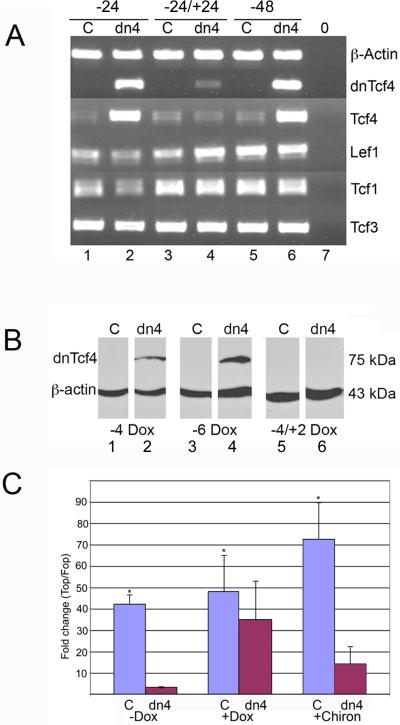Figure 2. Inducible expression of the dnTcf4 protein blocks Wnt signaling in ESC.
A. Control (C) and dnTcf4 (dn4) ESC were grown without Dox to induced transgene expression for 24h (-24, lanes 1,2) or 48h (-48, lanes 5,6) or for 24 hours without Dox followed by 24 hours with Dox (-24/+24, lanes 3,4). Lane 7 (0) is a no template negative control. PCR with a primer that anchors in the FLAG tag present in only the dnTcf4 mRNA shows that transgene expression is tightly controlled by Dox exposure and that reversible induction of the dnTcf4 had no effect on expression of endogenous Tcf4 or other Tcf/Lef transcription factors (Lef1, Tcf1, Tcf3).
B. Western blot demonstrating expression of the dnTcf4 protein 4 and 6 days after doxycycline withdrawal (Lanes 2,4). Expression is eliminated when doxycycline is reintroduced into the culture media for 48 hours (Lane 6). Expression is not detected in control cells (Lanes 1,3,5).
C. Wnt signaling is strikingly inhibited by dnTcf4 expression even in the presence of a GSKβ inhibitor (Chir99021) that strongly stimulates the Wnt pathway in luciferase assays. The mean fold change (TOP Flash/FOP Flash) in the control line (C) was significantly higher than the dnTcf4 (dn4) line without Dox for 4 days (-Dox), after Dox was withdrawn for 3 days and added back to cells for 1 day (+Dox), and without Dox for 4 days but with Chir99021 for 1 day (+Chiron,) * = p ≤ 0.05, Student's t test (n=3). Error bars represent SEM.

